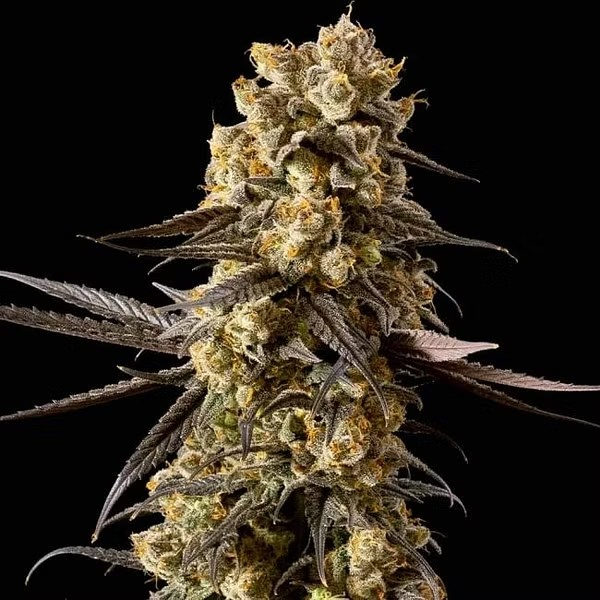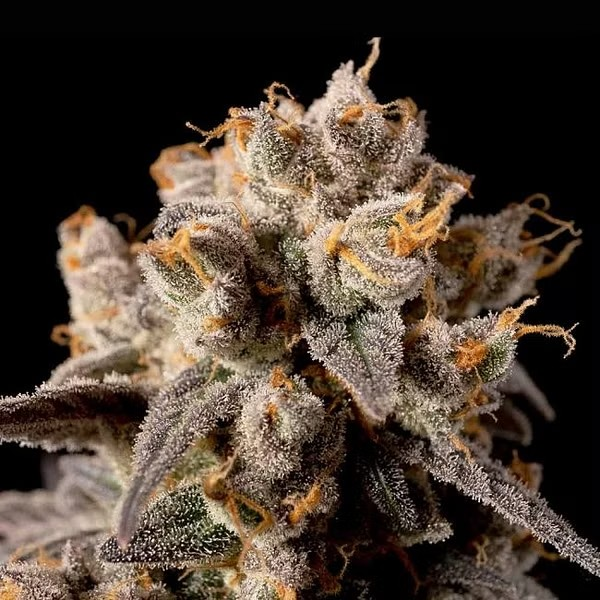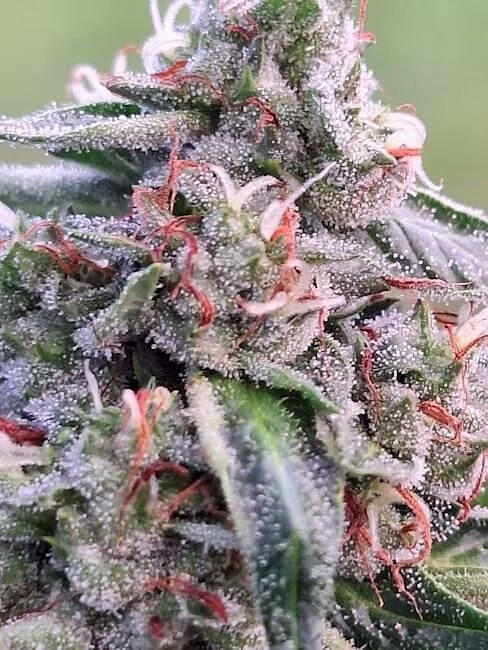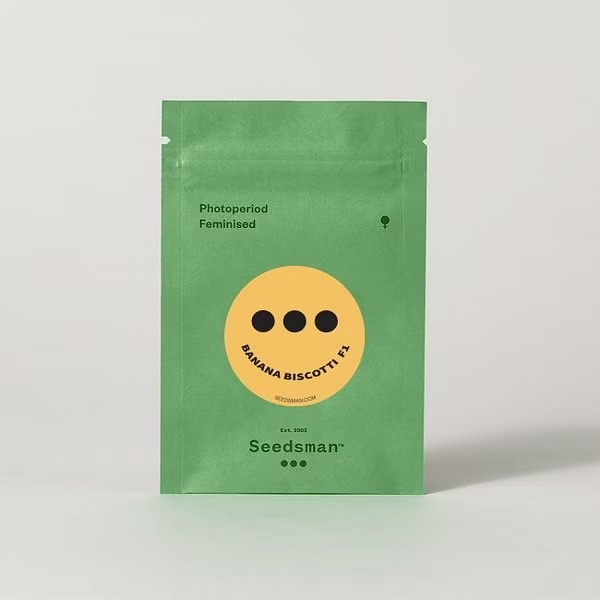Seedsman
Banana Biscotti F1 - Seedsman
Banana Biscotti F1 - Seedsman
Couldn't load pickup availability
Share
Description
Banana Biscotti F1 is a feminised, indica-dominant strain bred by crossing US strains (Strawberry Banana x Honey Boo Boo) with (Gushers x Biscotti). Both growers and consumers will love its clear, cerebral effect, attractive purple colours and pungent vanilla and gas aromas. Growers should have some previous experience in order to realise this strain's enormous potential.
Banana Biscotti F1 is a medium-sized plant that grows up to about 200cm tall outdoors. At maturity the buds are olive green and violet/purple with orange hairs and amber trichomes. Plants can be grown indoors as well as outdoors; in the case of the latter, Banana Biscotti F1 is versatile across cool, temperate, warm, hot, dry climates.
Indoors, plants take between 7 - 9 weeks to finish flowering, yielding up to 600gr/m2. Outdoors, in the northern hemisphere, harvest time is during September, or in March for growers in southern latitudes. The scent during flowering is only moderate so carbon filters are not necessarily essential indoors, depending on the grower's circumstances.
The terpene profile is big and pungent - sweet, fruity and floral with notes of vanilla, berries and gas. Its flavour is sweet, fruity and berry with hints of skunky citrus and earthy pine upon exhalation. THC content is an exhilirating and lab-verified 28%, the effect being pleasantly cerebral and refreshingly clear-minded.
What are F1 Cannabis Strains?
F1 cannabis seeds or plants are the first generation offspring of two parent plants. F1 hybrid seeds or strains are the first generation offspring of two pure, distinct strains. Note that using two pure lines, the result of intensive inbreeding, is drastically different to simple cross-breeding.
F1 plants have been used for decades throughout the agricultural industry because they offer several advantages; hybrid vigour allows plants to grow bigger more quickly. Plants are more uniform, stable and offer greater resistance to plant pests and diseases. Yields are much higher too, an important consideration.
However, it should be noted that it is not recommended to allow F1 plants to breed for seed crops as the resulting F2 plants will be much less uniform, being less stable and having greater genetic variability. New F1 seeds will need to be purchased or a lengthy and complex F1 breeding project carried out to produce more seedstock.








